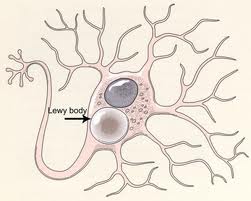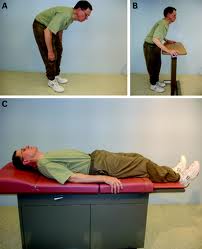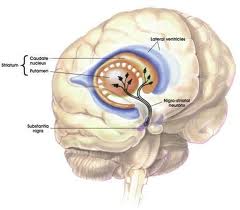Parkinson’s disease, also called paralysis agitans or shaking palsy is a movement disorder. Cases of PD are reported at all ages, though it is uncommon in people younger than 40.
This disease is more common among men and usually occurs after 60 years.The average age at which symptoms begin in the USA. is 58-60.
The nerve cells in the part of the brain which control movements are mainly affected. The nerve cells (neurons) which make the chemical called dopamine either don’t work sufficiently or are completely destroyed. The real cause behind this had never been identified. Though, many risk factors have been enumerated in literature.

Symptoms:
Persons suffering from Parkinson’s disease need not present with every common symptom. The number of symptoms and their intensities are known to vary with every individual. Most common signs & symptoms of Parkinson’s include:
- Tremors felt in the fingers, hands, arms, legs, jaw and face. Initially these tremors are mild and visible only while resting. Eventually they become visible even during routine movements.
- Rigidity is another symptom. Persons suffering often feel stiffness or inflexibility in their muscles. Muscles normally stretch when they move, and then relax when they are at rest. In rigidity, the muscle tone of an affected limb is always stiff and does not relax, sometimes resulting in a decreased range of motion.

- Bradykinesia or slowness of movements usually accompanies the sensation of stiffness and rigidity. A person with bradykinesia will probably also have incomplete movements, difficulty initiating movements and sudden stopping of ongoing movement.
There is increasing inability to perform tasks which require rapid alternating movements. - Loss of balance and in coordination of movements results in frequent falls when beginning to walk or run.
- Gait:There is a ‘shuffling’ gait characterized by short steps, with feet barely leaving the ground, producing an audible shuffling noise. Small obstacles tend to trip the patient.
- Decreased arm swing. Turning ‘en-bloc’, rather than the usual twisting of the neck and trunk and pivoting on the toes, PD patients keep their neck and upper body rigid, requiring multiple small steps to accomplish a turn. Stooped, forward-flexed posture both when sitting and standing.Festination: a combination of stooped posture, imbalance, and short steps. It leads to a gait that gets progressively faster and faster, often ending in a fall.
- Dystonia: abnormal, sustained, painful twisting muscle contractions, usually affecting the foot and ankle, interfering with gait. However, dystonia can be quite generalized, involving a majority of skeletal muscles; such episodes are very painful and completely disabling.
They may go through periods of “freezing”, which is when a person feels stuck to the ground and finds it difficult to start walking. The slowness and incompleteness of movement can also affect speaking and swallowing.
- Speech: the voice becomes very soft. Later, the sound turns hoarse and monotonous. Occasionaly, the speech becomes excessively rapid, soft, and poorly-intelligible.
Gradual progress in the disorder causes an inability to understand the meaning & essence of speech. Also, there is difficulty in deciphering the facial expressions seen on others when conversing. - Drooling: Weak swallowing and stooped posture causes drooling of saliva.
More symptoms which are seen in PD are:
- Small, cramped handwriting (micrographia)
- Dementia and confusion
- Fear or anxiety
- Slow thinking & memory problems
- Sexual dysfunction
- Fatigue and body aches
- Compulsive behaviors
- Loss of energy
- Sleep disturbances: excessive daytime sleepiness; insomnia; vivid, disturbing dreams.
These symptoms certainly vary in intensities in different persons. They are seen as the disease progresses and everyone do not suffer from all of them.
Homeopathic Treatment for Parkinson’s disease:
Our experience based on about 10 cases of Parkinson’s disease (as on April, 2008), is suggestive of encouraging results. At this point, we recommend homeopathy in the early cases and also those cases where the conventional treatment has either not helped at all or has helped partially.





